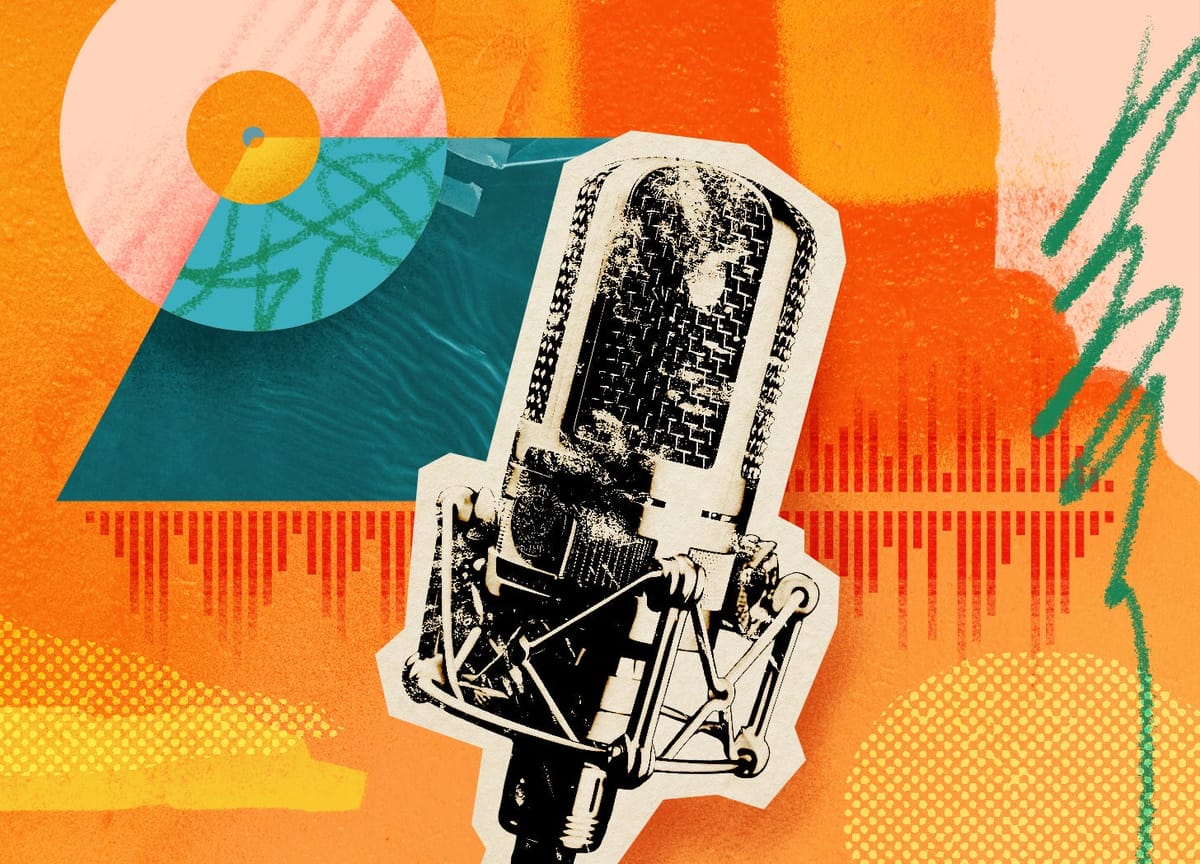Sound and Fury
Independent-music communities find themselves at a crossroads

Hi everyone,
Though the bulk of my career has involved writing about and working with visual artists, my first cultural awakening involved music. So this week’s podcast, with artist, DJ, and writer Jace Clayton, is the first in a two-part “miniseries” broadly about the overlaps between music and art. (Next week you’ll hear from the founders of Longform Editions.)
How do you discover new music? By coincidence, both podcast conversations took place just days after the announcement that Bandcamp, the premiere site for discovering and supporting independent music, was losing half its staff. It was the first big news after the company had been acquired by a VC-backed music-listening startup, and it occasioned anger and anxiety throughout the independent-music community. Most were worried about what this meant for the future of the platform. Musicians who rely on the fees earned from selling music on Bandcamp couldn’t imagine how they’d replace that income. Music lovers who turned to Bandcamp Daily for deep dives on faraway scenes, obscure genres, and historical subjects feared losing a treasured clearinghouse for information.
Both my podcast conversations touched on the industry’s shaky financial ecosystem and my guests’ belief in the fundamental power—and value—of music. When I asked Clayton about what technologies outside of platforms like Spotify gave him hope, asked his own question in return. “Nothing is outside of capitalism but music has this really weird place where it is this kind of dissonant yet resonant entity. Music has these qualities which are sort of intrinsic to the form—this openness, this plurality, this slipperiness, this fact that it is so hard to control—all these things, that’s where the little flames continue for me. And I’m like, “‘Oh, can different types of technological thinking or different types of network architectures reflect that?’”
One of my favorite music critics, Philip Sherburne, put it another way: “Bandcamp is too entrenched, too central to the business of independent music in the 2020s. For that very reason, we desperately need a host of competitors, a vibrant ecosystem to diversify the market and encourage innovations that will improve the current situation for artists, labels, and fans alike.” The irony is that his article was published in Pitchfork, itself “too central” as one of the last music-criticism websites standing. And if Bandcamp’s fate is now tied to its corporate parent, what does it mean that, in Condé Nast, Pitchfork is itself subject to executives’ change of heart?
Dirt, an independent media company that is experimenting with novel business strategies, surveyed music critics for a piece published last week. As one longtime blogger said, “From my perspective, [music criticism] is the best it’s been in years because writers are making their own blogs, newsletters, YouTube videos, podcasts, TikToks, books, curation on streaming, etc. It’s a bad time if your goal is to make (not very much) money working for legacy publications, corporations, and startups, but a great time if you want to express yourself.” Zach Schonfeld added: “I think the state of music criticism is strong, but the state of music journalism as a career path is bleak.”
I share their belief in the healthy state of music writing (and deeply enjoy, for example, Sherburne and Shawn Reynaldo’s Substacks). I’m also inclined to see crises as opportunities. I want experimental music and local scenes to flourish. This year I’ve been putting more of my money toward supporting the artists whose releases give me hours and hours of pleasure and sustenance. So I’ll ask a variation of my opening question: How do you discover—and support—new music? What new records have nourished you? Here are thirty of this year’s (mostly experimental) releases that are sticking with me—with, for now at least, links to their Bandcamp pages.
Love all ways,
Brian
🔗 Good links
- 🍽️ On reimagining the restaurant: “Admittedly, not everyone is into how we do things. We’ve had … incidents.”
- 🧼 “A handful of authors have recently begun a project of symmetry: offering not just advice for what comes before the cooking, but instruction on how to process its refuse.”
- 💸 The exhibition “presents artworks for which collectors determine a permanent monetary value—a sum that will remain innate to the artwork. Prospective buyers will propose monetary values for a given work. At the show’s end, Bader will compare offers, choosing the buyer-proposed value that best fits the work.”
- 📽️ Michèle Pearson Clarke “has brought all of her experiences and relationships into a[n art] practice that challenges audiences to see truths often hidden from view.”
- 🚃 Montreal’s REM is “in many ways unprecedented among recent North American transit projects, and bears valuable lessons for other cities.”
- 📉 “Even as design thinking descends from the height of its acclaim, digital whiteboards have delivered it unto a zombie afterlife.”
- 🏪 A dispatch from Europe’s largest arms fair: “DSEI is not a separate world, it’s the world we live in made visible.”
- 🏛️ Lots of attention went to the SANAA redesign of the Art Gallery of New South Wales. I also like Tonkin Zulaikha Greer’s rework of the museum’s 1970s-era library.





